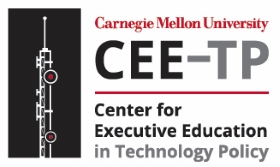Global Internet Governance
Lead Instructor: Dr. William Drake, Director of International Studies at Columbia University’s Institute for Tele-Information, Adjunct Professor at Columbia Business School, New York City and veteran of ICANN, IGF and WEF
Global Internet governance concerns the international and transnational institutions that help guide the operation and use of the Internet. Over the past twenty-five years, how the Internet should be governed has been the focus of substantial global debate and has given rise to new forms of international cooperation among governments, corporations, the Internet technical community, and civil society. This course surveys the historical evolution and contemporary dynamics of that cooperation, and draws on both the scholarly and policy practitioner discussions and the lecturer's extensive experience in Internet governance processes. Throughout the course we will interweave two levels of analysis: overviews of the institutions, interests, and dynamics shaping the key governance issue-areas; and attention to the concerns and roles of governments and stakeholders from the developing countries.
The course is organized as follows. Day One lays the conceptual foundations and considers the nature of global Internet governance and the Internet’s ecosystem of multistakeholder technical institutions. Day Two maps the development of global governance processes in the 21st Century and assesses both the UN’s World Summit on the Information Society and the evolution of key institutions and debates in the years since that watershed event. Against this background, Day Three assesses the dynamics of multistakeholder cooperation by focusing on the Internet Corporation for Assigned Names and Numbers, including its transition from US government oversight to independence and the role of governments in its activities. For this discussion we will be joined by a senior representative of the Argentine government who has significant experience in ICANN and other multistakeholder processes. Day Four then turns to the dynamics of multilateral cooperation and the ways in which Internet governance has been addressed by key UN agencies and other international organizations. Day Five considers the new governance challenges raised by the transition to a global digital economy, including crossborder data flows, Internet fragmentation, and artificial intelligence. Finally, Day Six looks at future prospects and assesses the UN’s new Global Digital Compact and the options for improving global Internet governance.
- This course is intended for people working in the public policymaking and advocacy arenas who wish to understand and even participate in global Internet governance processes.
- Upon completing the course, participants will have a deeper practical understanding of the complex issues, actors and dynamics associated with multistakeholder, multilateral, and hybrid institutions for global Internet governance and digital cooperation.
- No prior knowledge is required. Course members will bring their own unique expertise and experience to the discussion.
